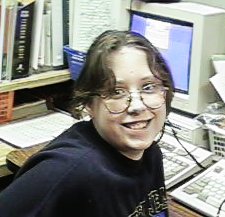

Dear Mr.D,
Hi!! How are you ? I am fine.I have some questions for you. This is Ashleigh.
We searched on the web for your aticle and we found it!!


Hi, Ashleigh,
I will try to answer your questions.
1) When someone finds out that there is something wrong with the pacemaker what do they do?
Usually, the problem is found out by the patient's doctor. The doctor will then decide on what is appropriate. It just depends on what the problem is and how much the patient needs the pacemaker.
2) Who was the genius who saved Mrs.Weeg's life in process of making a magnificent invention?
Pacemakers, such as the one Mrs. Weeg has, have evolved over the past 40 or 50 years. The very first, completely implantable pacemaker was invented in Sweden in 1958. It was developed by a group of engineers, so credit cannot be given to one person.
3) How did the first pacemaker look ?
Since my company made the first pacemaker, I will try to find a picture of it and bring it to Delmar when I come up. It was made of "clear" epoxy and shaped kind of like a hockey puck (though not as big). You can see all of the electronics inside the device. It really is kind of neat.
4)How could the people improve the pacemakers ?
We try to improve pacemakers with every new generation. Now days almost all pacemakers are really tiny computers that perform all sorts of calculations so that the pacemaker can "act" more like the normal human heart's pacemaker.
5)What do you think they should do to improve them ?
Since pacemakers are just about perfect, there are very few things left to do to improve them. We have to balance things like battery life versus how long the pacemaker will last. These days, when we improve pacemakers, you have to look very hard for what we did to make it better.
6)Can people adjust their pacemaker without going to the hospital ?
Yes, they can.
7) If they can how ?
We are able to "talk" to the pacemaker using telemetry developed in the space program. The pacemaker has the ability to "transmit" information to the programmer. The programmer (a computer like device) can send commands to the pacemaker and changes are made.
8)Who does this if they can ?
Programmed changes are *usually* made by the patient's doctor or a pacemaker follow-up nurse. Sometimes a person from the company, such as myself, will do the programming and testing.
9)What kind of school do you have to go to to do this job ?
People in my job come from all sorts of backgrounds. Some have college degrees in electrical engineering, biomedical engineering, physiology, nursing (me), etc.
10) We heard you just had a second article published in PACE magazine. Could you send us a copy ?
I will try to remember to bring you a copy of both of my PACE articles. They are pretty boring though and I do not want to see a "HUH?" on the WWW pages after you read them.
Back to civilization. No more questions. So what have you been up to ? The usual ?
Yep, you guessed it.
Thanks for writing back to me.
You're welcome.
You have a lot of homework to make up young man.
Huh? I thought I had finished all my homework.
I will not dare call you old because 70 is old and anyway that is very mean to say.
Thanks.
We searched on the web for your article and we found it!!
O.K., now you can write a report on it. ;-)
Thanks for all the really great questions. I can tell that you put a lot of thought into them. I hope my answers are clear.
Your KeyPal,
Mr. D
Delos Johnson
